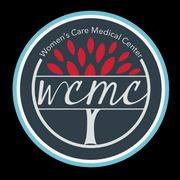5 Foods to Abstain From During Pregnancy

Your baby relies on you for nutrients during the approximately nine months that you are carrying them. However, just as eating the right foods will help bolster their health, certain items can have an adverse effect. The following pregnancy help guide looks at some of the indulgences you should avoid for the time being.
What Foods Should You Not Have While You're Expecting?
1. Alcohol
Consuming alcohol when you are pregnant increases the risk of fetal alcohol spectrum disorders, a series of birth defects that can affect your baby's growth and development. Since there is no guarantee that any amount of alcohol is safe, it is best to avoid it altogether if you are, think you might be, or are actively trying to become pregnant.
2. Unpasteurized Products
Dairy products provide the body with many essential vitamins and minerals, including calcium and vitamin D, which contribute to strong, healthy bones and a balanced diet. However, anything containing unpasteurized milk could contain listeria. Listeria infections can be very dangerous for pregnant women and unborn babies. Steer clear of unpasteurized milk and soft cheeses like brie, blue cheese, and feta unless they are clearly labeled as pasteurized products.
3. Excess Caffeine
 Many people rely on coffee to lead fast-paced, active lifestyles. However, while you are pregnant, you should limit your intake. Studies show that consuming too much caffeine during pregnancy can increase the risk of miscarriage. Try not to drink more than 200 mg—or one 12 oz cup of coffee—per day. Remember that other foods and beverages, such as soda, chocolate, tea, and energy drinks contain caffeine as well.
Many people rely on coffee to lead fast-paced, active lifestyles. However, while you are pregnant, you should limit your intake. Studies show that consuming too much caffeine during pregnancy can increase the risk of miscarriage. Try not to drink more than 200 mg—or one 12 oz cup of coffee—per day. Remember that other foods and beverages, such as soda, chocolate, tea, and energy drinks contain caffeine as well.
4. Undercooked Meat & Eggs
Eating undercooked protein can always cause bacterial food poisoning, but you risk a more severe reaction when you are pregnant. Raw eggs are especially a concern, as they may expose you to salmonella. Fully cook all meat and eggs before eating.
5. Seafood High in Mercury
Seafood is an excellent source of protein and omega-3 fatty acids, but some types of seafood can contain potentially dangerous levels of mercury. Stay away from swordfish, shark, bigeye tuna, king mackerel, and tilefish. Instead, federal dietary guidelines recommend pregnant women consume 8 to 12 oz of low-mercury seafood per week. Salmon, shrimp, tilapia, canned light tuna, cod, and sardines are all safe choices.
If you need pregnancy help and advice, the compassionate staff at Women’s Care Medical Center will provide answers and solutions. Serving Robertsdale, AL, for more than 30 years, these qualified medical professionals offer judgment-free pregnancy support and services such as pregnancy testing, options consultations, prenatal care, and ultrasounds. Learn more about their pregnancy help services online. To discuss your questions and concerns with a trusted health care provider, call (251) 947-2111 to schedule an appointment.
About the Business
Have a question? Ask the experts!
Send your question

